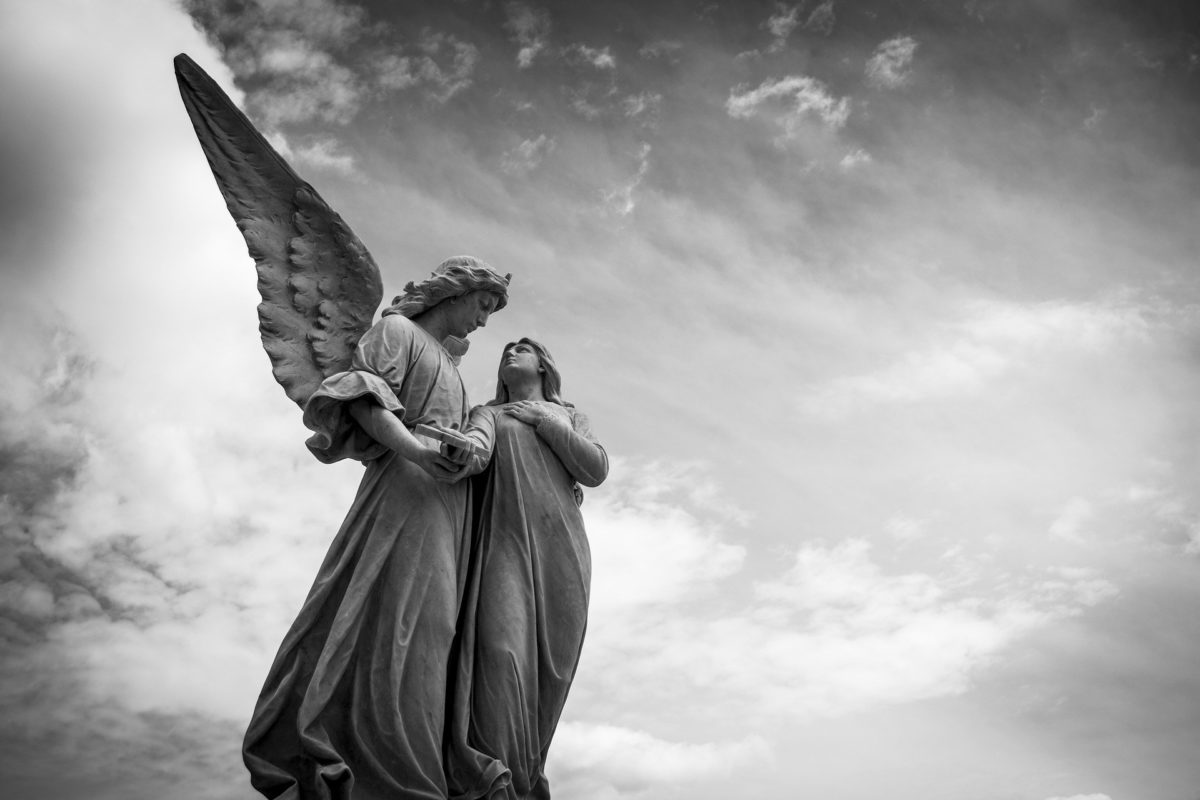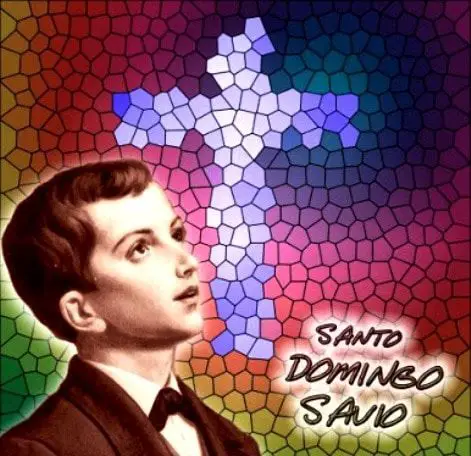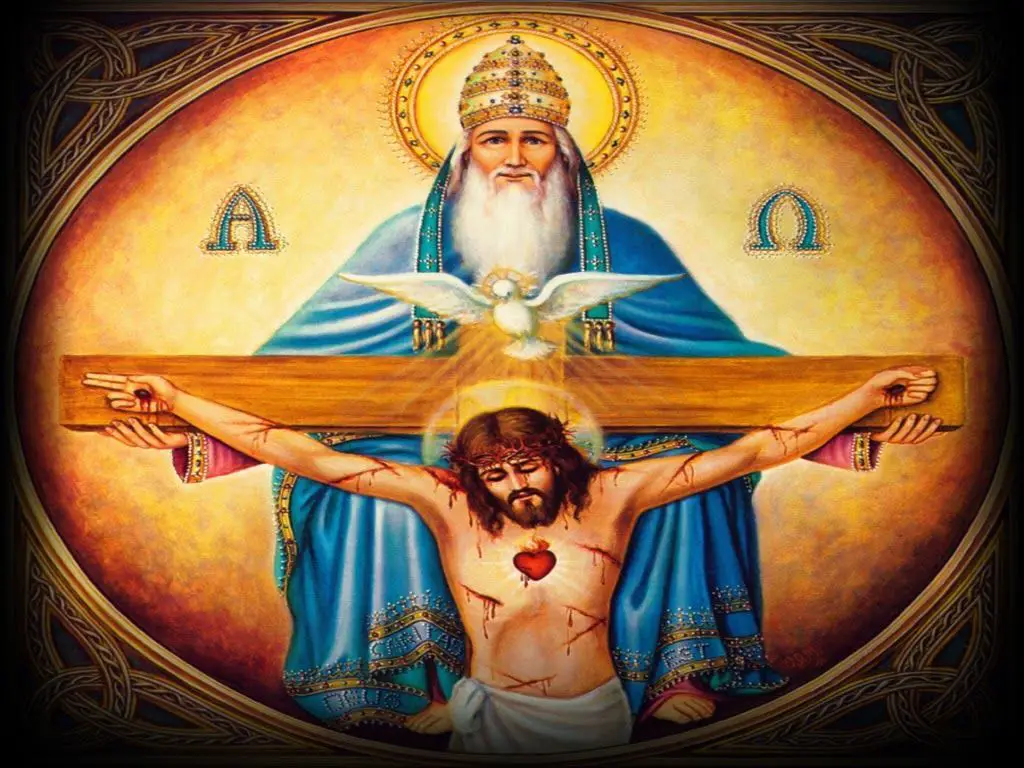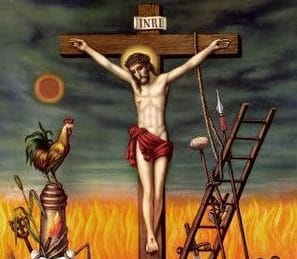Learn the story of St Nicholas of Tolentino, a Catholic priest whose life you will find interesting. Continue reading our very interesting article.
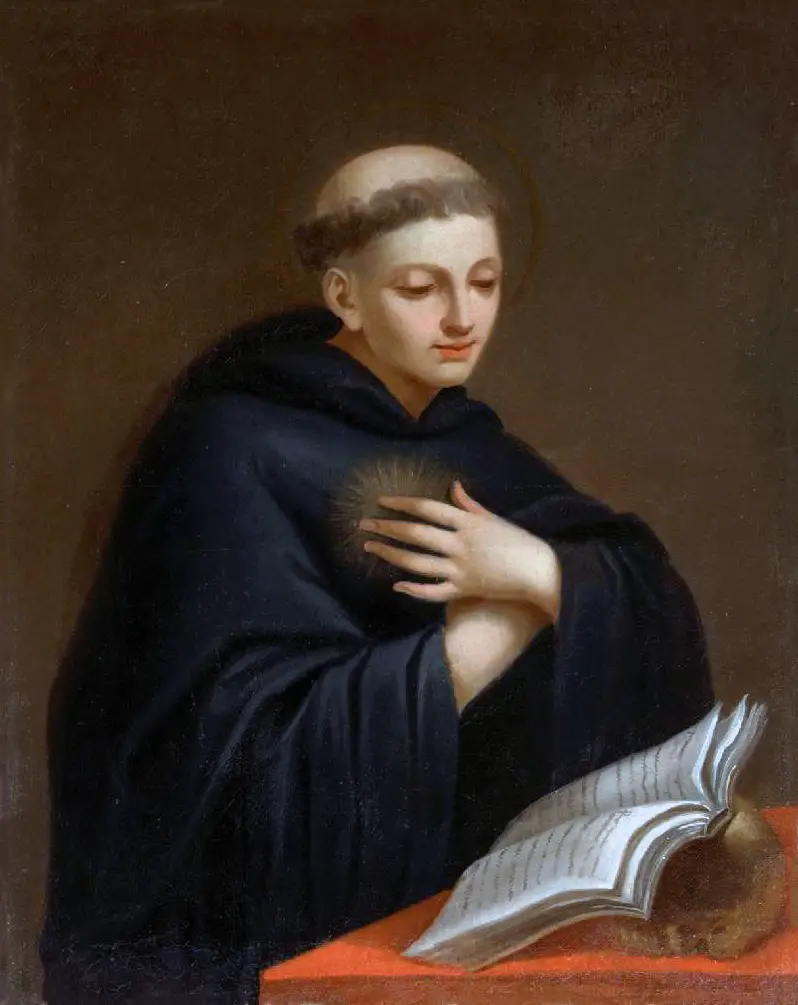
Nicholas of Tolentino (1245-1305) was a simple Augustinian monk-priest (follower of St. Augustine) who entered into the lives of many people because of his prayerful soul, austere life and faithful devotion to the Holy Souls in Purgatory. Through his preaching he attracted many people to become faithful followers of Christ.
He was born Nicholas Gurutti in 1245 in Sant’Angelo, Pontano, Macerata, Italy. His family was very poor.
His parents, unable to have children, made a pilgrimage to the shrine of St Nicholas of Myra, where his mother prayed for a son and dedicated him to the spiritual life and service of God.
It is said that Nicholas of Tolentino prayed to God a lot from an early age. Nicholas became a monk at the age of 18 and was ordained a priest seven years later. He gained a reputation as a preacher and confessor.
To learn more about the life of St Nicholas of Tolentino, watch this video:
In 1274 he was sent to Tolentino, near his birthplace. The city was suffering from civil war between the Guelphs, who supported the Pope, and the Ghibellines, who supported the Holy Roman Emperor, in their struggle for control of Italy.

Nicholas was first and foremost a shepherd of his flock. He ministered to the poor and to criminals. It is said that he healed the sick with bread over which he had prayed to the Virgin Mary, the Mother of God.
He joined the Augustinian Order as a young man after hearing the inspired preaching of Reginaldo da Monterubbiano, prior (local superior) of the Augustinian monastery of Sant’Angelo.
As a priest and religious, he was full of charity towards his fellow Augustinians and the people he served. He visited the sick and cared for the needy. He was a remarkable preacher of the Gospel. He paid special attention to those who had fallen away from the Church. He was considered a miracle worker.
Watch this video about the birth of St Nicholas of Tolentino:
He often fasted and did other penances. He spent long hours in prayer. It is said that one day, after fasting for a long time, Nicholas was physically weak.
While he was praying, Jesus told him to eat bread marked with a cross and soaked in water to regain his strength. This was the origin of the Augustinian custom of blessing and distributing the bread, which was given to the poor and later called St Nicholas’ bread in his memory.
Another story has it that as Nicholas slept in bed, he heard the voice of a deceased monk he had known telling him that he was in Purgatory (See: What is Purgatory according to the Bible?) and urging him to celebrate the Eucharist for him and other souls there so that they might be set free by the power of Christ.
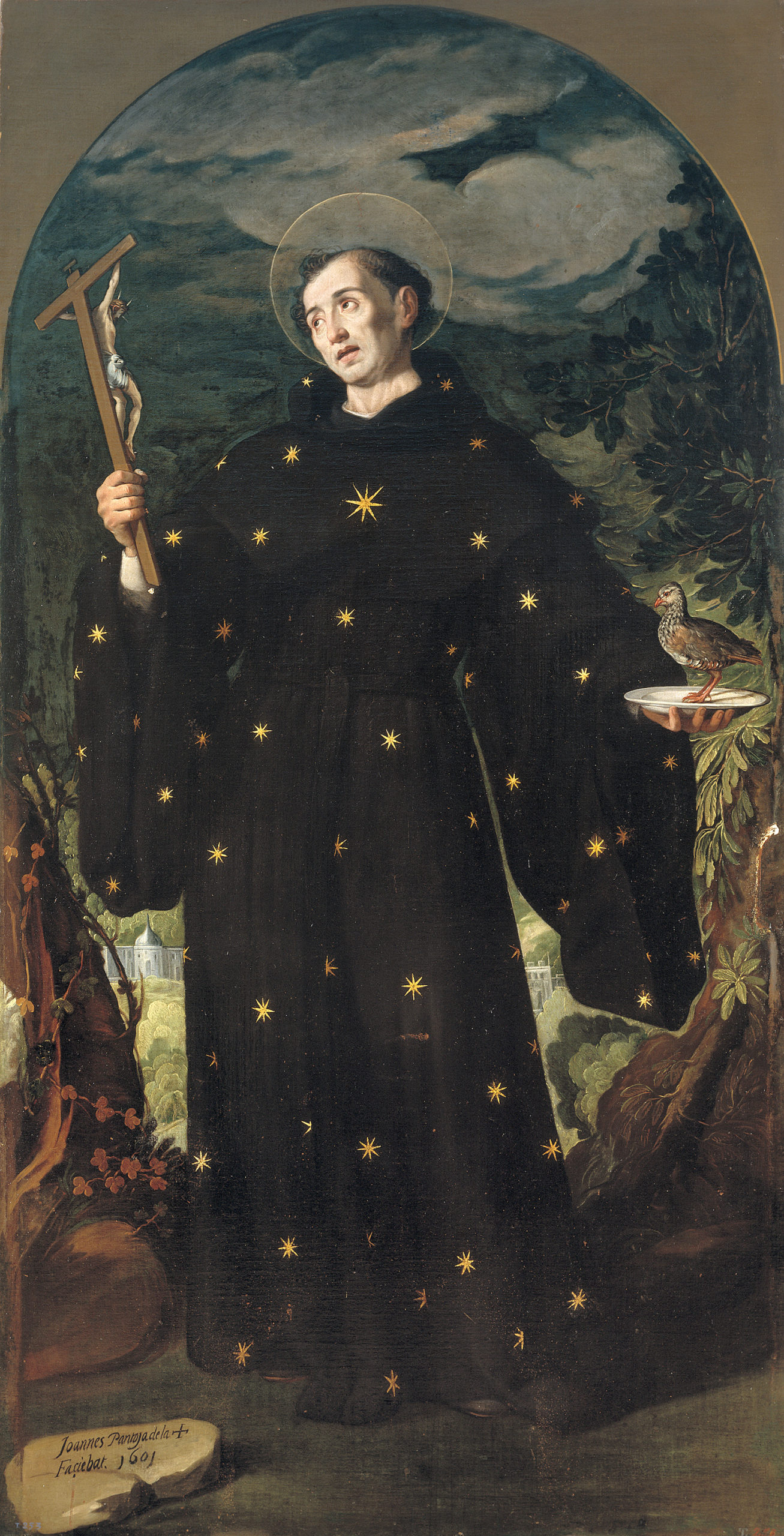
Nicholas did this for seven days. The monk spoke to Nicholas again, thanking him and assuring him that many souls were now with God. As a result, St Nicholas was proclaimed the patron saint of souls in purgatory.
He is also considered the patron saint against epidemic diseases and fires. Nicholas spent most of his adult life in Tolentino, Italy.
He died there on 10 September 1305 after a long illness. People immediately began to call for his canonisation. He was canonised by Pope Eugene IV in 1446, making Saint Nicholas of Tolentino the first Augustinian saint to be canonised after the Great Union of the Order of Saint Augustine in 1256.
The remains of St Nicholas are kept in the Sanctuary of St Nicholas in the town of Tolentino and were exhumed in 1926.
Prayer to St Nicholas of Tolentino
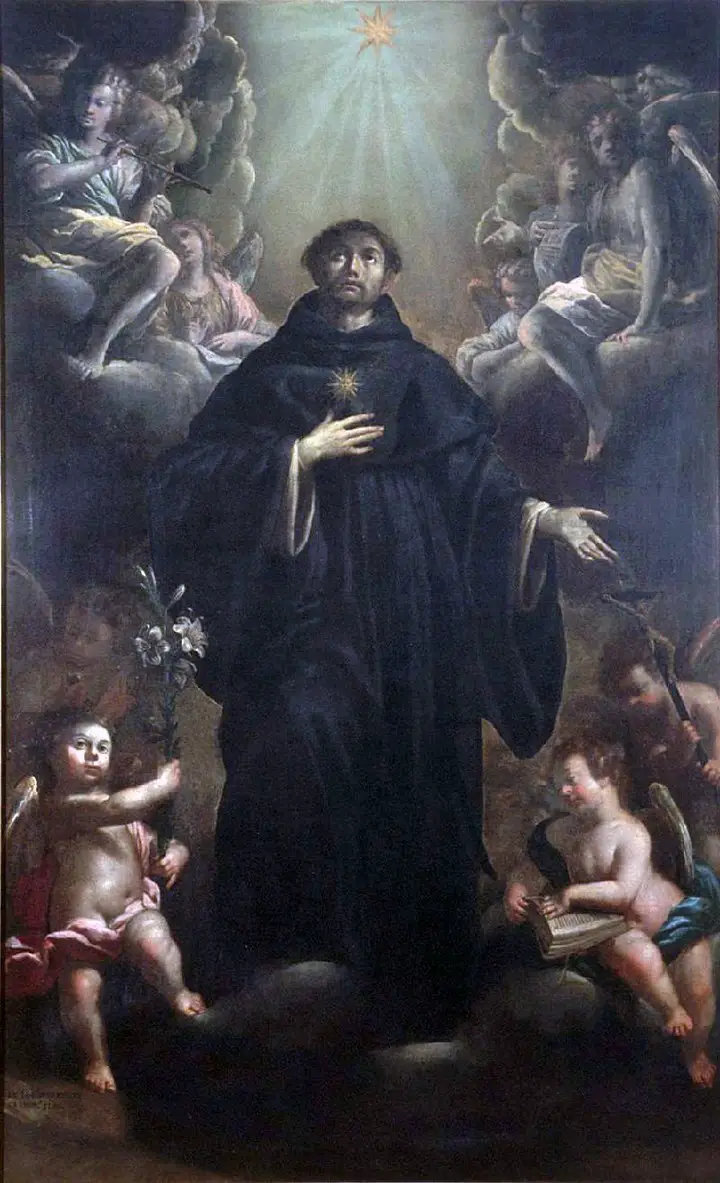
O God, source of strength and courage, you gave your beloved preacher, Saint Nicholas of Tolentino, the conviction of the faith to the end.
Grant us the ability to put your teaching into practice, to remain patient in the midst of difficulties, to serve the poor and the suffering, and to live as your true and faithful servants. St Nicholas of Tolentino, pray for us. Amen.
Here is a video of the prayer to St Nicholas of Tolentine:
Prayer for the Deceased by St Nicholas of Tolentino
Lord, God of holiness and light, do not allow any shadow of darkness or evil in Your sight, and in Your mercy grant to those who have left this world burdened with sin a time of purification, applying to them the spiritual treasures of Your holy Church.
Hear my prayer and, through the merits of Christ, the Blessed Virgin Mary, St Joseph, the saints and all your faithful, bring to an end this time of waiting for our beloved dead, especially (name the deceased here).
In your providence you have chosen St Nicholas as a special intercessor for the deceased. Hear also his fervent prayer for those whom I commend to you through his intercession. Amen.
Prayer of St Nicholas of Tolentino for lost souls
O God of infinite goodness, through the prayers of St. Nicholas of Tolentine, I come to You with great confidence on behalf of the holy souls in Purgatory. In Your great Mercy, free them from every stain of sin and from every self-love that prevents them from beholding You in eternity, THE FULFILLMENT OF LOVE. I love you for all eternity and for the fullness of the love you profess for all their souls. Amen.
If you wish, you can also pray the prayer to Our Lady of Mount Carmel for the deceased, which is often recited in such cases.
We recommend that you watch this video with the prayer for the blessed souls in purgatory:
Novena to St. Nicholas Tolentine
This novena to St Nicholas of Tolentine is also called his perpetual novena, for the suffering souls in purgatory.
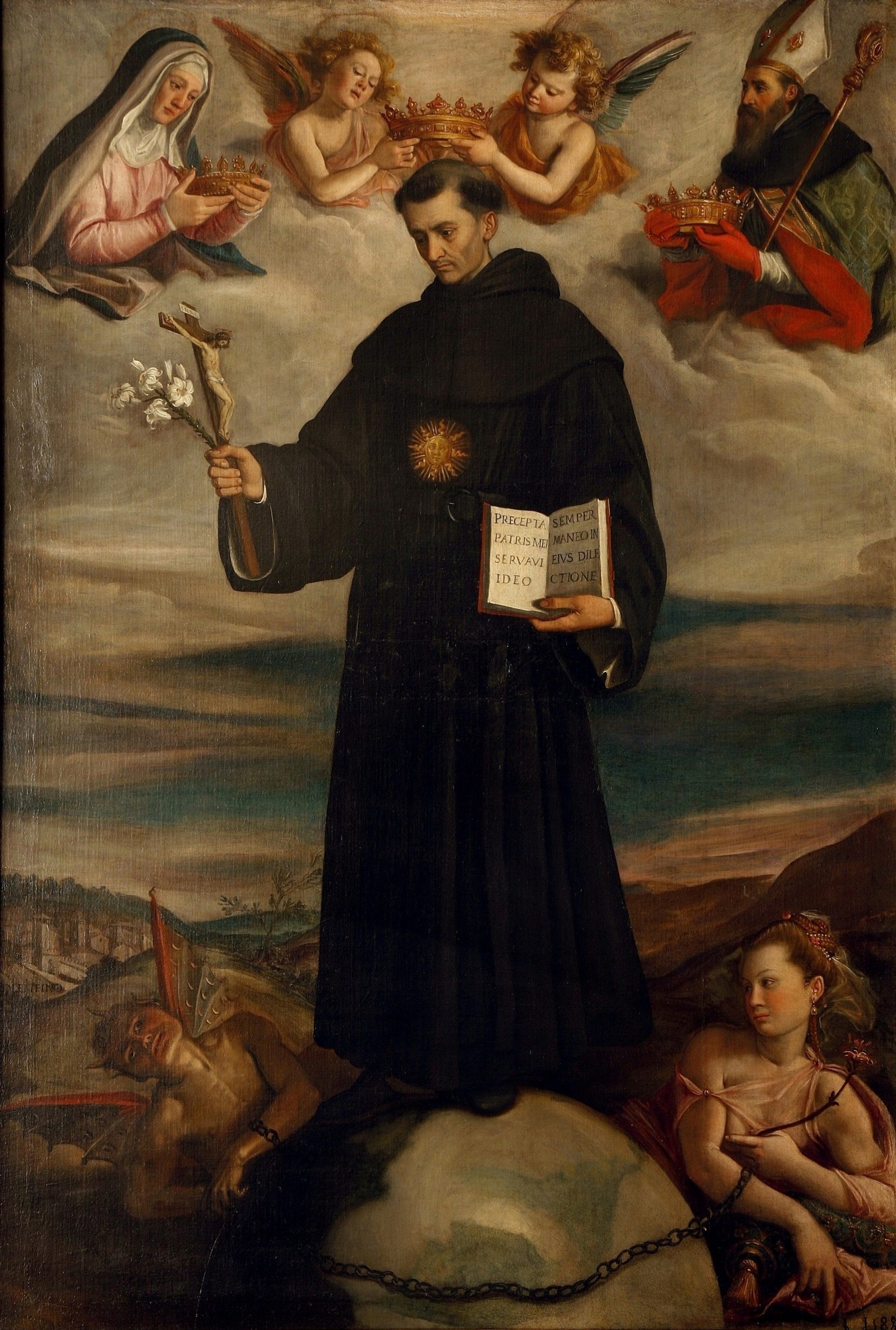
St Nicholas of Tolentino, patron saint of holy souls, pray for us. Remember, O merciful Lord, the compassion that moved His heart when the cry of misery and suffering in Israel reached His ears.
How Your eyes searched the rocks for the poor lepers who cried out to Your Son, how You stretched out Your hand to the child of Jairus and to the widow’s son in Naim.
How tears came to your eyes at the tomb of Saint Lazarus. See Purgatory, the land of suffering, where the souls who love you await the touch of your healing mercy.
Through the fruits of Your Passion, stretch out Your hand once more to relieve the poor souls who are in pain and suffering.
O Lord, hear our worthy prayers. We join them to the prayers of your holy servant, St. Nicholas of Tolentine, who offered you his devotion in the silent hours of the night.
Hear our prayers for those who cannot plead for themselves, and grant the saint and the souls in purgatory happiness and repose.
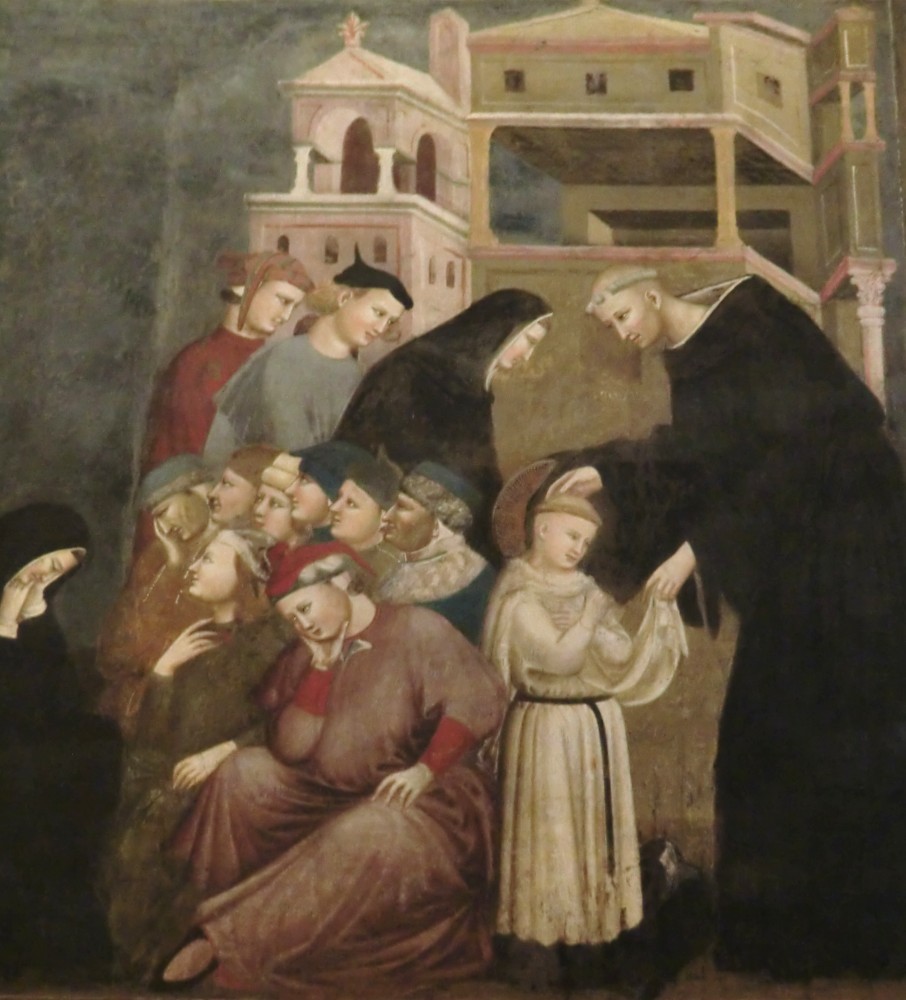
From the depths I cry to you, O Lord; Lord, hear my voice, let your ears be attentive to the voice of my supplication.
If you, O Lord, point out our guilt, O Lord, who would survive, but with you forgiveness is found, for this we worship you.
My soul waits for the Lord, I trust in his word. My soul longs for the Lord more than the watchman at dawn.
Let the watchman wait for the dawn with the Lord. For with the Lord there is mercy and fullness of salvation; Israel shall surely be redeemed from all his iniquities. Eternal rest, O Lord, give them everlasting light.
May they rest in peace. Almighty Father, God of mercy. May this offering be our prayer for forgiveness. Our strength in weakness, our support in all we do.
And may it be for the living and the dead the forgiveness of all their sins and the pledge of eternal salvation. We ask this through Christ our Lord.
Eternal Father, you who are the glory of the faithful, you who are the life of the righteous. We have been redeemed by the death and resurrection of your Son.
Grant, as St. Nicholas of Tolentino asked of you, that our deceased brothers and sisters, who have professed their faith in the mystery of our resurrection, may meet and be made worthy to share in the joys and blessings of the life to come. We ask this through Christ our Lord, Amen.
You can also make the novena to St Augustine, as St Nicholas was a faithful monk and follower of St Augustine.
Prayer to St Nicholas of Tolentine for protection
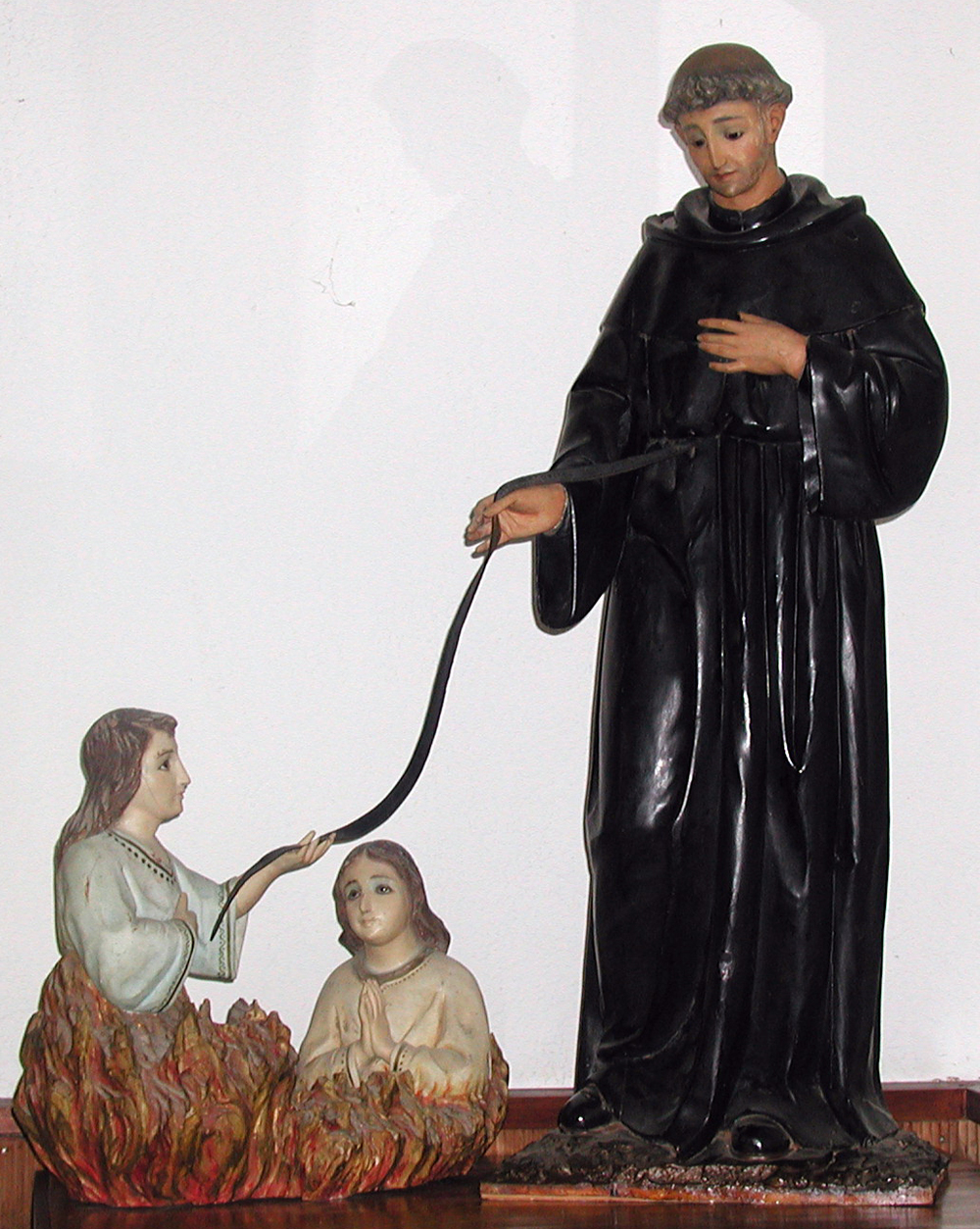
O bright shining star of holiness, splendour and glory of the Augustinian Order; our mighty protector, St. Nicholas, hear from heaven the prayers of your faithful followers.
Teach us to imitate the example you have set here in heroic virtue, to control our passions and restrain our rebellious appetites, that we may live in the light of divine grace and escape the foul contagion of habitual sin.
Give us a love for Jesus like that which filled Your own sinless heart, and a tender devotion to Mary, His Mother, that we may be more like You with a filial love for Her.
Strengthen us in our efforts to reach heaven, that we may always be faithful to Jesus and Mary; have faith in the miracles of Jesus (see: How many miracles did Jesus perform?) and strengthen us with your prayers, that we may merit a share in the bright and endless joys you enjoy now and for eternity. Amen.
See in this video the basilica where the relics of St Nicholas of Tolentino are kept:
Prayer to St Nicholas of Tolentine as your patron saint
St Nicholas of Tolentine, who has been chosen as my patron saint, pray for me, that I too may give you glory before the Holy Trinity in the heavens of our Lord.
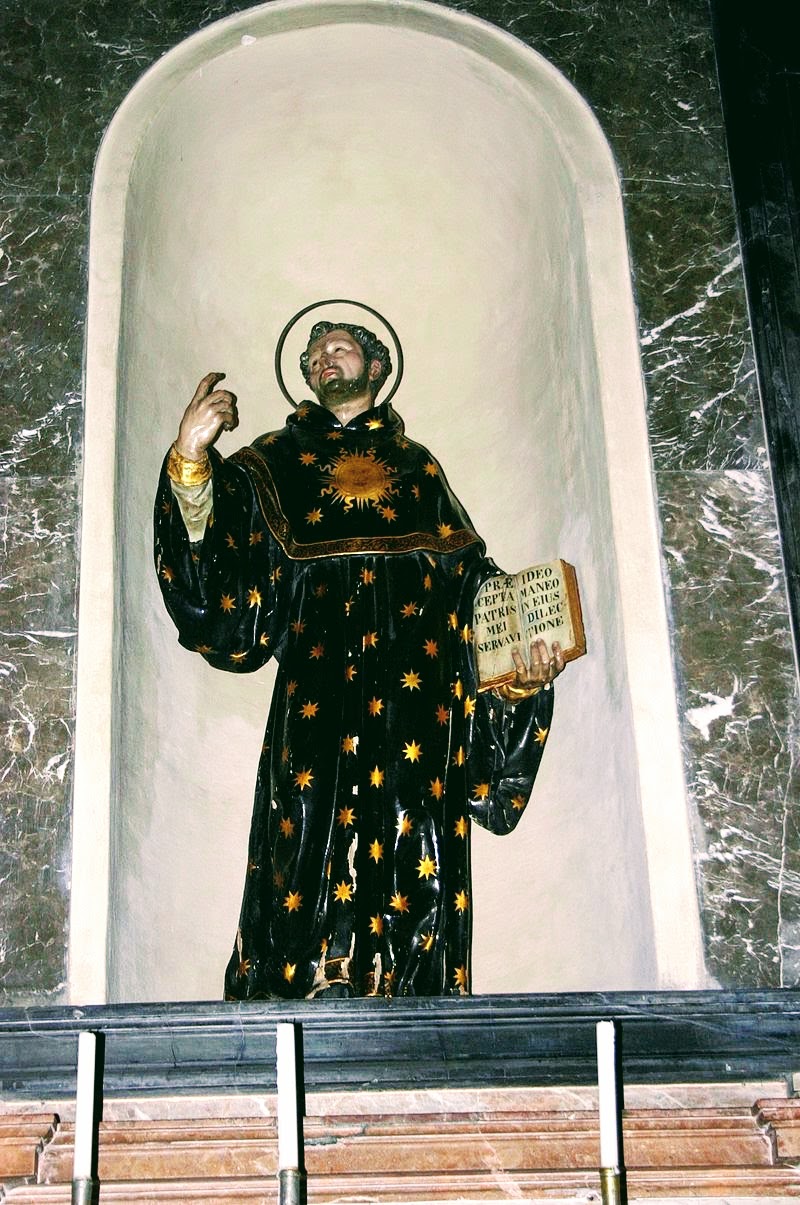
Obtain for me your living faith that I may view all persons, things and events in the light of Almighty God. Pray that I may be generous in sacrificing temporal things for my eternal interests, as You have so wisely done.
Hear me with love for Jesus, that I may thirst for His sacraments and burn with zeal for the extension of His kingdom. By your powerful intercession help me to fulfil my duties to God, to myself and to the whole world.
I have the virtue of chastity and great trust in the Blessed Virgin. Protect me today and all the days of my life. Keep me from mortal sin. Grant me the grace of a happy death. Amen.
St Nicholas of Tolentine and the souls in purgatory
St. Nicholas of Tolentino is famous for his great devotion to the souls in purgatory, also thanks to the mystical experiences he had in 1270 in the hermitage of Valmanente.
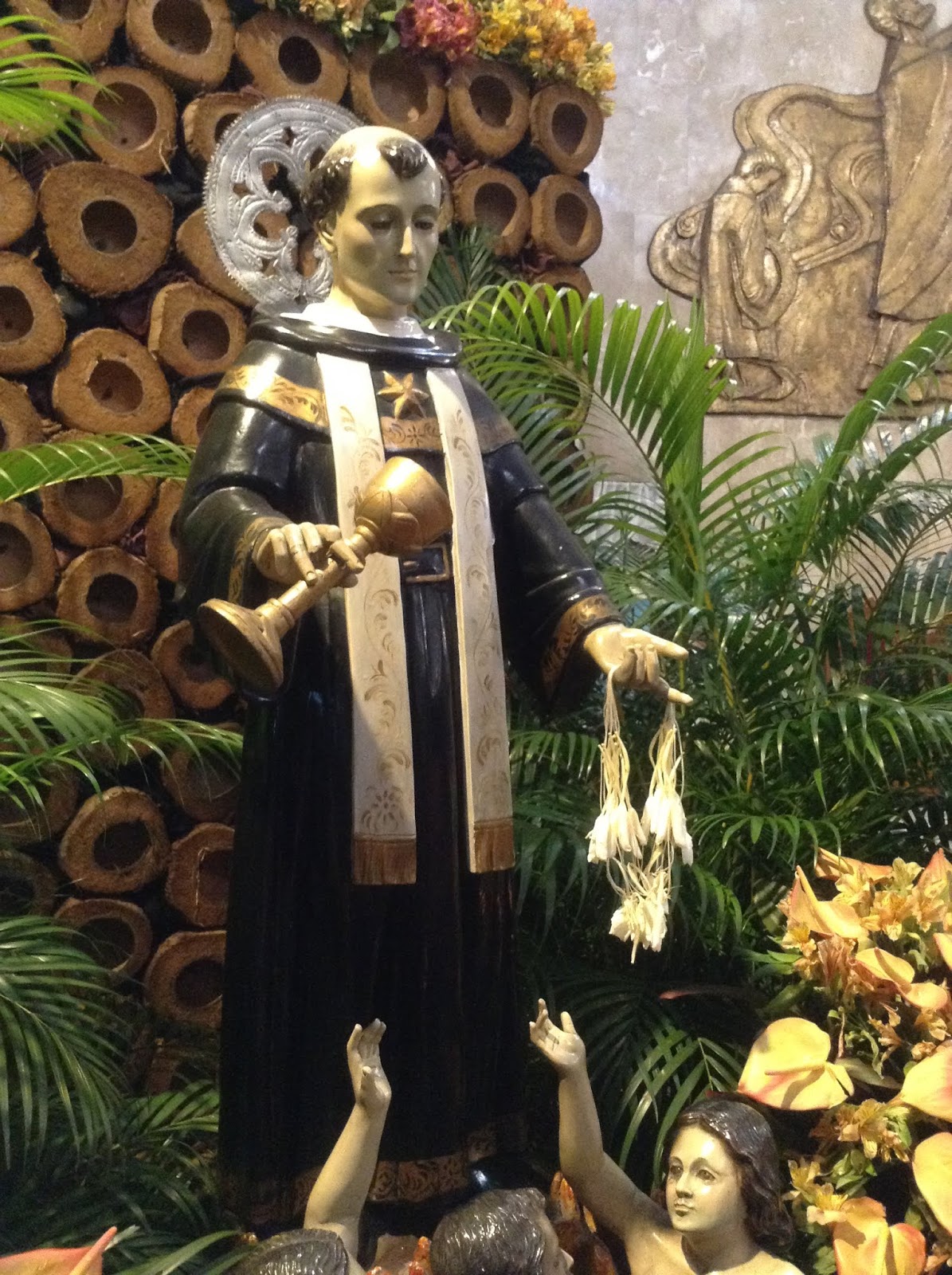
It was Boniface IX in 1390 and Leo XIII in 1884 who canonically established the
The Pious Union under the patronage of St. Nicholas of Tolentino, to help the poor souls in purgatory. And named this saint as the patron saint of poor souls.
In the Life of St. Nicholas of Tolentino, written by Pietro Da Monterubbiano, we find certain episodes narrated that have as protagonists some deceased souls:
Once, when he was entrusted with the weekly calendar for the conventual Mass, he fell asleep for a moment in his humble bed the night before Sunday.
Suddenly a soul called out to him in a loud voice: Brother Nicholas, man of God, turn to me!
St. Nicholas turned to the soul and tried to recognise it, but after looking at it he could not understand who this soul was when it was alive, so St. Nicholas, disturbed, asked it to make itself known.
This time the soul replied: “I am the soul of Brother Pellegrino of Osimo, whom you knew when he was alive: at that time I served as your servant, now I am tormented in this radiance.
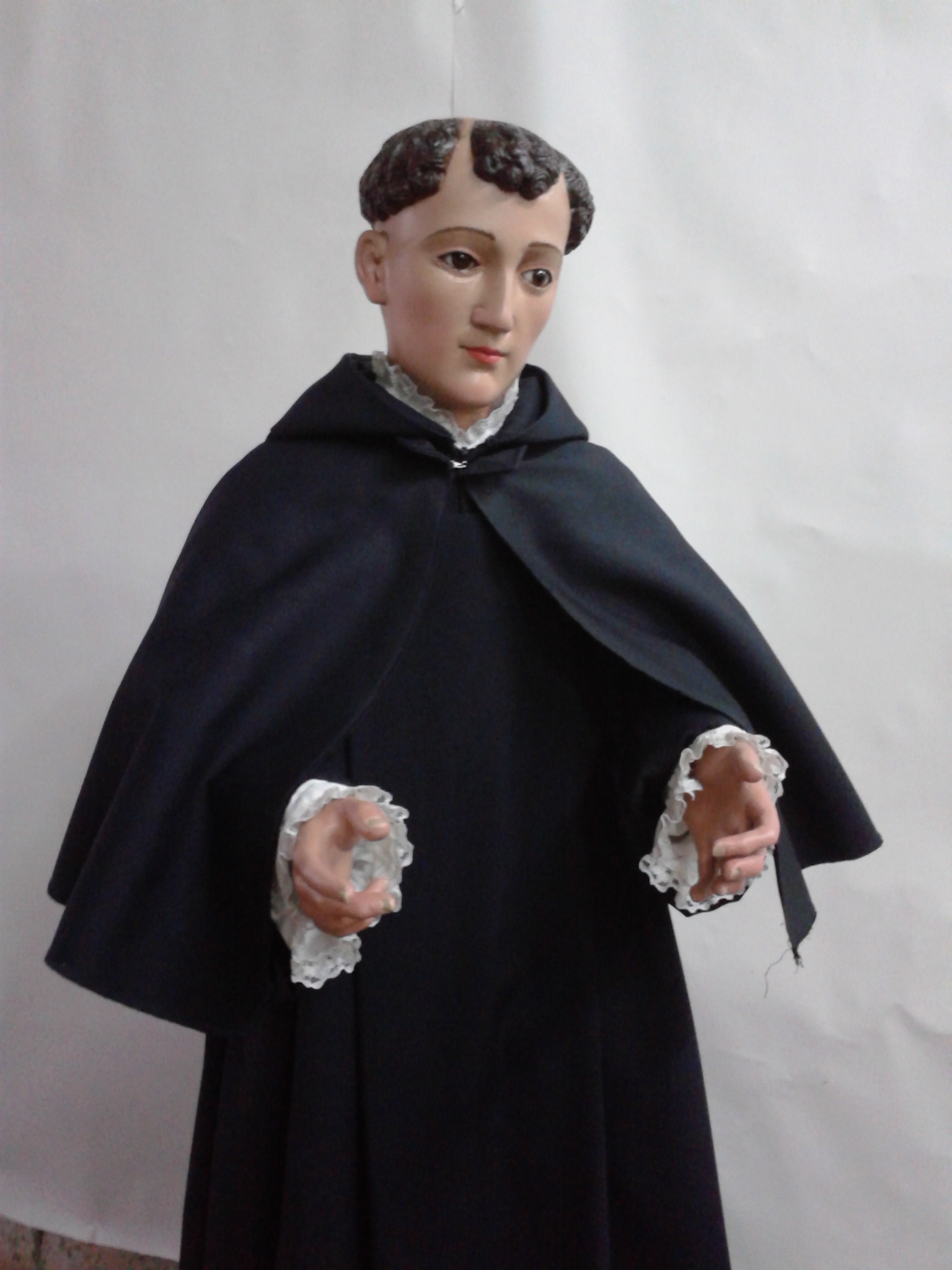
Having received my repentance, God did not condemn me to eternal punishment, which I deserved because of my weakness, but to purgatory, because of His mercy.
Now I humbly ask you to be so kind as to celebrate a Mass for the dead, so that I may finally be removed from these flames’.
Nicolas replied: ‘May my Saviour have mercy on you, O brother, by whose blood I was redeemed; I have only been entrusted with the ordinary Masses, which must be celebrated solemnly, and since it is not right to change my responsibility, let alone on the coming Sunday, I cannot say the Mass for the dead’.
To this the soul replied: ‘Come, Venerable Father, come and see for yourself if it is really
This request comes from a wretched crowd.
The soul then took him to another part of the hermitage and showed him the small plain near Pesaro, where there was indeed a crowd of people, of both sexes, of different ages and conditions.
of both sexes, of various ages and conditions, and also belonging to a variety of lost religious.
Have mercy, Father, have mercy’ on such a wretched crowd who are waiting for your merciful help; in fact, if we are willing to celebrate Mass for us, most of these people will be removed from these most terrible tortures.
A large number of the faithful visited him in the monastery and went to confession with him, leaving him reconciled with God and relieved of his inner torment. The miracles attributed to his intercession are numerous.
Here is the explanation of the day of Saint Nicholas of Tolentino:
The miracles of Saint Nicholas of Tolentino
As for his miracles, Saint Nicholas is said to have revived more than 100 dead children, including several who had drowned together.
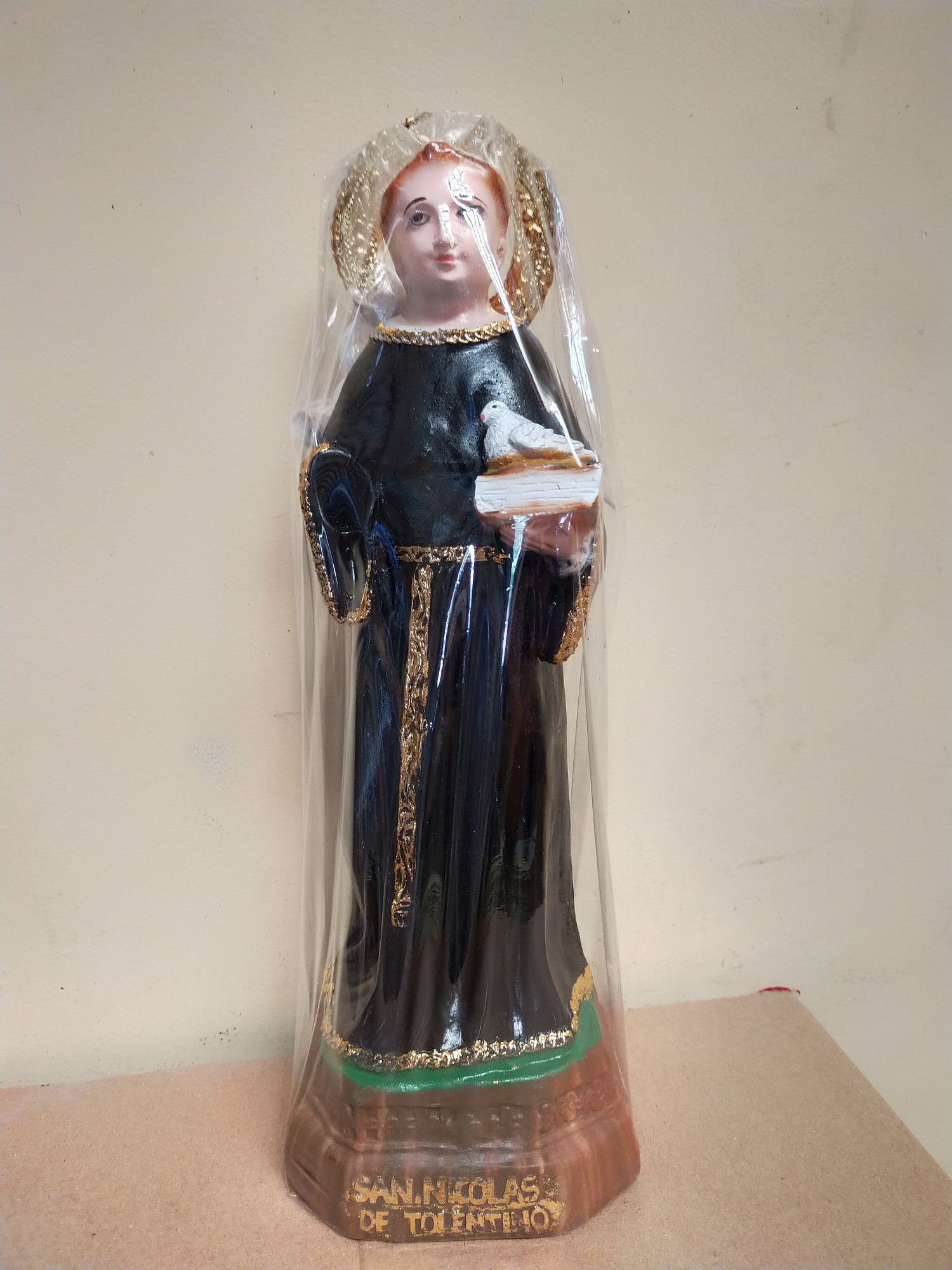
On another occasion, when nine passengers on a sinking ship called for his help, he appeared in the sky, dressed in his black Augustinian habit, radiating golden light and holding a lily in his left hand.
With his right hand he calmed the storm. Another apparition of the saint once saved the burning Doge’s Palace in Venice by throwing a piece of blessed bread on the flames.
Speaking of blessings, Nicholas, a vegetarian, was once served a roast partridge; when he made the sign of the cross over it, the bird revived and flew out of the window.
The relics of St Nicholas (his arms), now in the Chapel of the Holy Arms in Tolentino, were not rediscovered until 1926, although in earlier times they were known to ooze blood when the Church was in danger.
The most famous oozing took place from 29 May to 1 September 1699, but it is said to have begun only 40 years after Nicholas’ death. It seems that a German monk, seeking relics for his homeland, broke into the saint’s tomb and cut off his arms.
The monk fled into the night, only to find himself at the tomb the next morning, running in his place and holding the two bleeding arms.
To prevent further robbery attempts, the monks hid the rest of Saint Nicholas’ body so well that it has never been found.
Watch this video to learn more about Saint Nicholas of Tolentino and his life:
Poems to St Nicholas of Tolentine
This poem was written by Linda Dove in honour of St Nicholas of Tolentino:
I no longer row in this boat. Without oars I cheat death. I flee from sadness. My arms continue to work without me, just some old wooden people waiting to start fires.
Can you lose hope in your hands? Once they broke bread and made the sign of the cross. In Tolentino Square, I raised my arms and swept the stars. (The stars are further away than it seems. Try to walk towards
one).
I fed the pigeons, I fed the sick. Hooked behind my back as he skinned me. Over bowls, my palms caught the sparrows I made in my mouth.
Desire. Obedience. Gods as small as a speck. I hid decisions in the skin. Then the adze fell between the body and the fifth sense.
What happens when you lose contact? I missed the crossbar. Torn from the relics, it speaks. I hear my mother in the ear of my hugs. I hear voices in the background. Alarm, alarm My arms are the world’s hammer. They tilt time. They yearn for air like wings that have been clipped.
Listen to the hymn to St Nicholas by Tolentino in this video:
Legends of Saint Nicholas of Tolentino
There are many stories and legends about Saint Nicholas. One says that the devil once beat him with a stick, which was then displayed in his church for years.
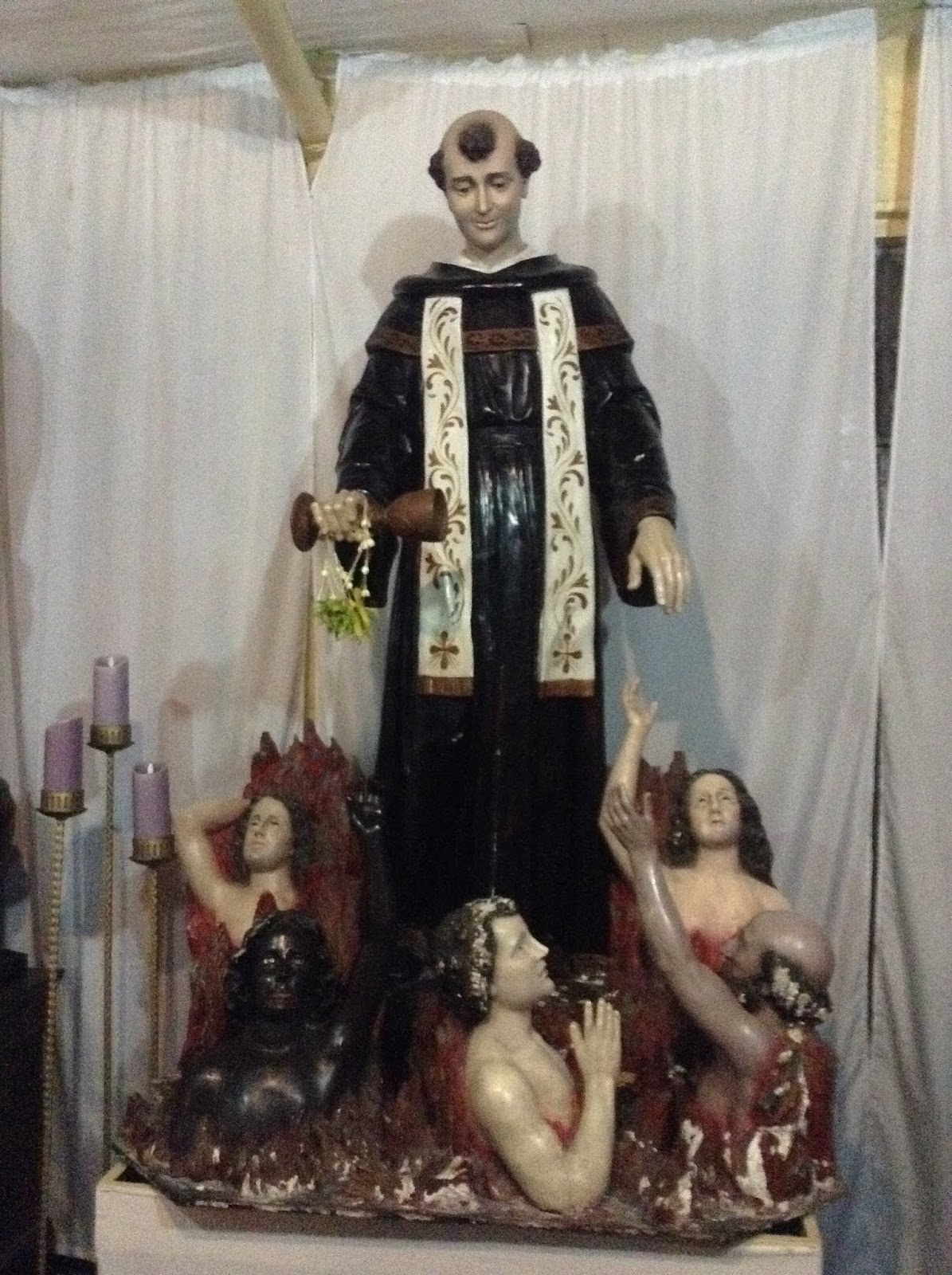
In another, Nicolas, a vegetarian, was served a roast bird, for which he made the sign of the cross and flew out of a window.
Nine passengers on a ship sailing out to sea once asked Saint Nicholas for help, and he appeared in the sky, dressed in his black Augustinian habit, radiating golden light, holding a lily in his left hand and calming the storm with his right, just as the Virgin of Charity of El Cobre saved many fishermen and sailors.
When the burning palace of the Doge of Venice was saved, an apparition of the saint is said to have thrown a piece of blessed bread on the flames. He is also said to have raised more than a hundred dead children, including several who had drowned together.
According to the Peruvian chronicler Antonio de la Calancha, it was San Nicolas de Tolentino who made possible a permanent Spanish settlement in the harsh high-altitude climate of Potosi, Bolivia.
Watch this video to learn more about the Pueblo San Nicolas de Tolentino in San Luis Potosi, Bolivia:
It is said that all children born to Spanish colonists died in childbirth or shortly after, until one father dedicated his unborn child to Saint Nicholas of Tolentino (whose own parents had needed the saint’s intervention to have a child).
The settler’s son, born on Christmas Eve 1598, survived to a healthy adulthood, and many subsequent parents followed suit, naming their children Nicholas.
Fun facts about St Nicholas of Tolentino
Several churches and oratories are dedicated to him, including San Nicolò da Tolentino in Venice, San Nicola da Tolentino agli Orti Sallustiani in Rome and St Nicholas of Tolentino in The Bronx, New York.
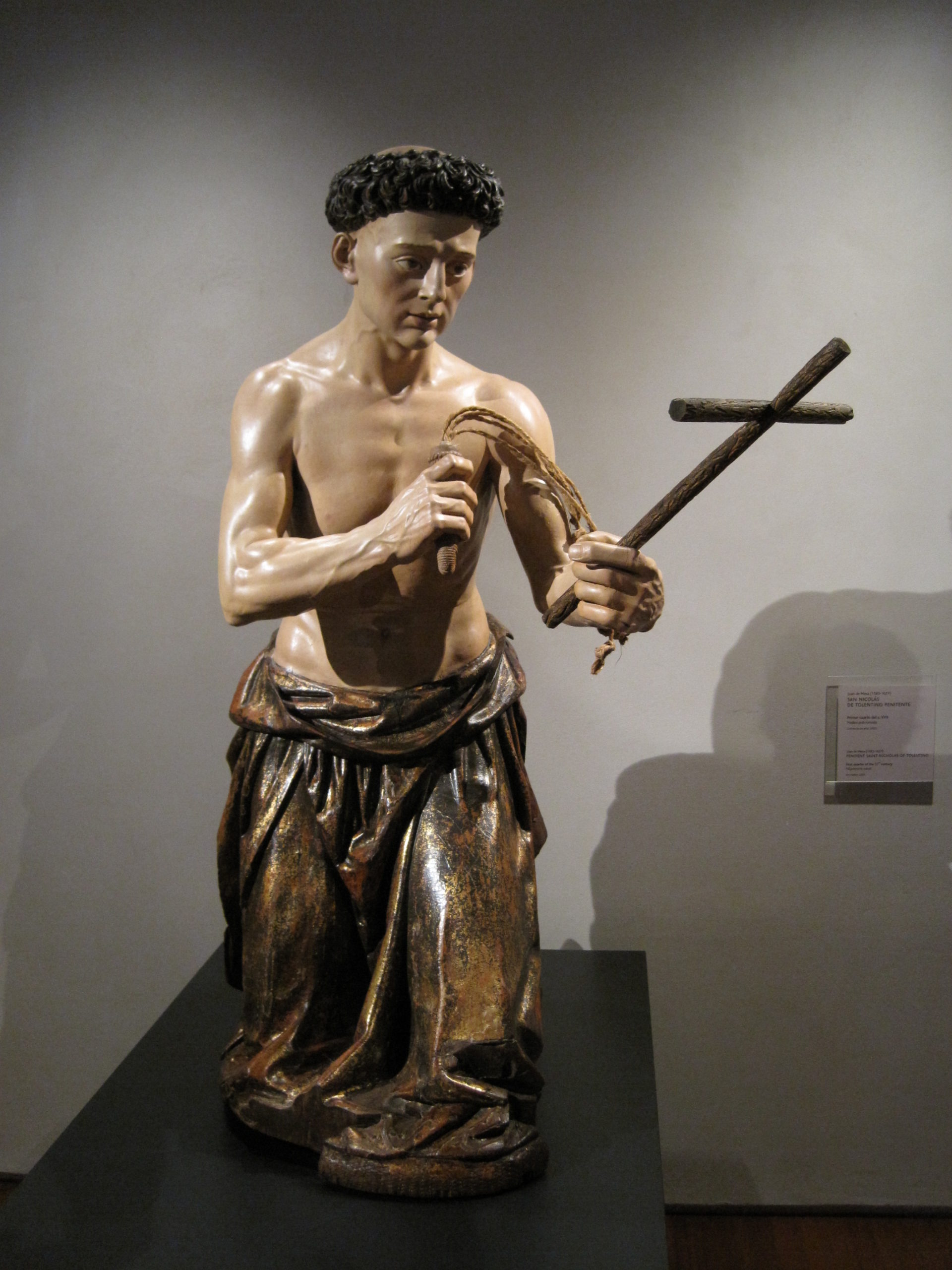
In the Philippines, the 16th-century church of St Nicholas of Tolentino in Banton, Romblon was built in his honour, and his feast day is celebrated annually as the Biniray Festival, which commemorates the devotion of the island’s Catholic inhabitants to St Nicholas during the Muslim incursions of the 16th century. There is also a church of St Francis Xavier on the island.
There is also a bread called “St. Nicholas bread”, which is not really a specific type of bread, but rather the name given to the bread distributed in the name of the saint.
This tradition is rooted in southern Italy and Sicily, where there are areas where Pani di S. Nicola or Pagnottelle di San Nicola are distributed.
The custom seems to have come from the tradition of St. Nicholas of Tolentino, although it was made especially for St. Nicholas of Myra. In Ganzirri, the fishermen believe that the loaves can calm storms at sea.
Therefore, after being blessed in the church, the fishermen carry the loaves in their fishing boats. When storms come, they throw the loaves into the sea, believing that they will be protected.
St Nicholas of Myra is sometimes depicted with loaves of bread, with or without the book of the Gospels. The loaves commemorate the miracle of grain that relieved the famine in Myra.
See this last video of St Nicholas of Tolentino, patron saint of bakers:

